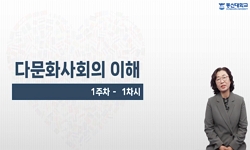This paper examines the formation and the maintenance of a new type of family in South Korea, multicultural family. The crisis of social reproduction from the 1990s brought about marriage migration of women and the resulting multicultural families. De...
http://chineseinput.net/에서 pinyin(병음)방식으로 중국어를 변환할 수 있습니다.
변환된 중국어를 복사하여 사용하시면 됩니다.
- 中文 을 입력하시려면 zhongwen을 입력하시고 space를누르시면됩니다.
- 北京 을 입력하시려면 beijing을 입력하시고 space를 누르시면 됩니다.
부가정보
다국어 초록 (Multilingual Abstract)
This paper examines the formation and the maintenance of a new type of family in South Korea, multicultural family. The crisis of social reproduction from the 1990s brought about marriage migration of women and the resulting multicultural families. Deploying the concept of global householding, this paper examines how multicultural families are formed and maintained through immigration and related policies. For this analysis, I locate the family as an important site for reproduction in society, with women as the main service providers. By analyzing policy and public discourses around foreign brides and their multicultural families, I argue that multicultural families, as a circuit of global householding, widen foreign brides’ social reproductive roles beyond their households; foreign brides who are asked to be reconfigured as main caregivers through marriage migration have widened their reproductive roles beyond their households within the framework of multicultural policies.
동일학술지(권/호) 다른 논문
-
- 한국도시지리학회
- 이용균
- 2023
- KCI등재
-
디지털 장소로서 플랫폼 의미와 역할 탐색: ‘당근’을 사례로
- 한국도시지리학회
- 강다희
- 2023
- KCI등재
-
우리나라 도시축소의 공간적 특성 분석: 인구집중구역의 변화를 중심으로
- 한국도시지리학회
- 조대헌
- 2023
- KCI등재
-
- 한국도시지리학회
- 서재준
- 2023
- KCI등재





 KCI
KCI KISS
KISS




